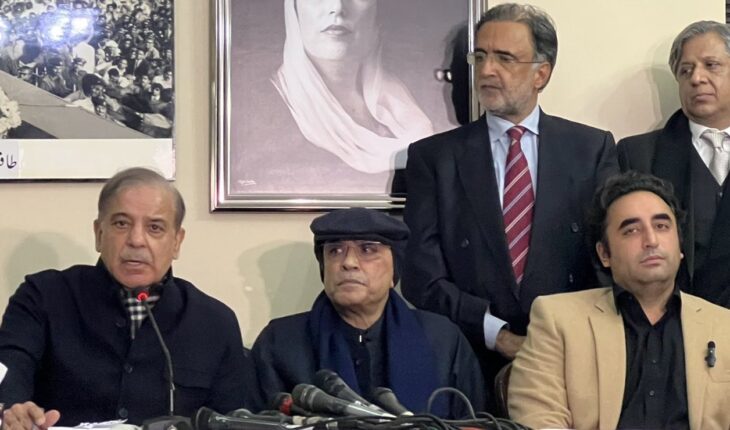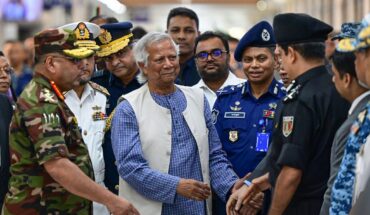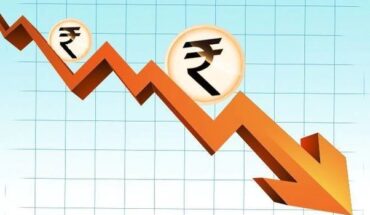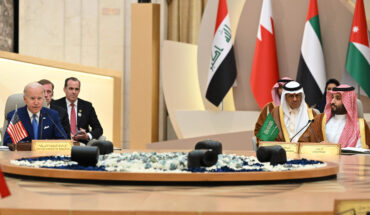With the announcement of a new coalition government under the banner of the Pakistan Democratic Movement (PDM-2), the decks are being cleared for huge Arab investments in Pakistan as well as in the region, including India.
The Sovereign Wealth Fund Institute has estimated that the Gulf SWFs have deep pockets; collectively, they manage around 3.7 trillion USD. The region’s seven largest funds have combined assets of about 40 per cent of global SWF assets.
India is already receiving investments from the region, but the bounties of
the treasure chest will accrue on a much larger scale, if the twins, India and Pakistan, the countries created in 1947, improve their ties. It is hoped that with PDM-2 forming the government, the two estranged neighbours might normalize their relationship.
The outcome of the February 8 polls, perhaps, might finally seal the political fate of Nawaz Sharif, a three-time prime minister, but new history is being created in Pakistan. In spite of the suggestions of some powerful political groups favouring a martial law, army Chief General Asim Munir, has refused to intervene and offered his support to the new civilian regime.
With the failure of Nawaz Sharif’s party, Pakistan Muslim League-Noon (PML-N) to muster majority in the National Assembly, his political fate has been sealed, but it has brought two crafty and cunning leaders, Shehbaaz Sharif, his younger brother and Asif Ali Zardari under one umbrella. Shehbaaz now will be PM for the second time. He had headed the PDM-1 government till the polls were announced last year.
Zardari, a successful businessman, is known for political acumen in negotiating for power whether it is army or any political outfit. His father-in-law, Z.A. Bhutto, was deposed during his tenure as PM by the then army chief, General Zia-ul-Huq, who later got him hanged trough a farce judicial process. Bhutto’s daughter, Benazir, who had married Zardari, also a former PM, was assassinated by killers sent by the then military dictator, Musharraf in 2007. Yet, Zardari, did not hesitate to carve out a political career for his son, Bilawal, in the country’s murky political environment with the GHQ.
It goes to the credit of Zardari and Shahbaz that they have finally sealed an alliance preventing the return of Imran Khan and his supporters to power. The stunning success of independent candidates having allegiance to Khan’s Pakistan-Tehreek-Insaaf (PTI) in the polls has been historic. They have won despite being denied the political symbol of their party. The Khan supporters have also trounced Nawaz Sharif in one of the constituencies he had contested. The PTI supporters have also been elected as independents in large numbers in the provincial assemblies of Punjab and Khyber Pakhtunkhwa (KPK).
The political and financial significance of this alliance is manifold. In political terms, the PML-N and Pakistan People Party (PPP) offers political stability and since they have tacit support of the GHQ, the new government may go ahead with substantial changes in its foreign policy towards India as being desired by the Arab investors.
It is hoped that with the advent of the new regime, the major financial players in the petro-rich Gulf countries, especially Saudi Arabia and UAE, will be keen to invest in the business and industry for lucrative returns. India has already emerged as a favourable destination for investment. They are also keen to invest in Pakistan.
A Paradigm Change
The Arab countries have recently been stressing upon two issues; that they were in no mood to squander their petro-dollars in the unnecessary avoidable conflicts in the region, and they do not want to give any charity to Pakistan in the name of Islam or funding the terror outfits. Instead, they advocate spiritual Islam, which advocates other faiths. Further, their refusal to support HAMAS against Israel reaffirms their new policy.
During the eighties, the Arab countries were pursuing the US-led western policies of preventing the growing influence of the USSR (now Russian Federation) in South Asia. However, with the sudden exit of the US-led NATO forces from Kabul, the direct presence of the erstwhile colonial powers in the region finally ended. Also, the futility of the ongoing Ukraine-Russian War accompanied by HAMAS attack on Israel has also brought paradigm changes in the policies of the Arab world towards the Indian sub-continent. They find India a lucrative destination for investments, but they are also keen to stabilize Pakistan economically by offering investment on an unprecedented scale.
In a bid to justify its ignominious exit a Whitehouse document of 2023 camouflages the Biden Administration’s disgraceful action as an effort for peace! However, this disgraceful action emboldened the then Pakistani army chief General Qamar Jawed Bajwa to have truce with India on the Line of Control in Jammu and Kashmir. Bajwa was opposed by the then PM, Imran Khan.
The collapse of alliance between the army and Khan has enabled Asif Ali Zardari, former president of Pakistan and co-chairman of the Pakistan People’s Party (PPP) to occupy the centre-stage of Pakistani politics. It goes to the credit of Shahbaz Sharif that he successfully reinvented ties between the GHQ and Sharif family.
Both Sharif and Zardari have not only ousted Imran Khan from power. He is now languishing in jail. In spite of his supporters being re-elected as independents, his future will depend upon the performance of the PDM-2 government.
The number of SWFs around the world has grown steadily over the past two decades, from 62 funds in 2000 to 176 in 2023. During that time, SWF assets have ballooned from one trillion USD to 11.36 trillion USD. For resource-rich countries such as Gulf oil and natural gas producers, SWFs have emerged as promising tools to save for future generations, mitigate the effects of outsized economic shocks. These funds could be deployed as reserve investment and strategic development funds to spend on human, natural, social, and physical capital.
The Gulf is currently home to about 20 SWFs, with at least one such fund originating from each of the six Gulf Cooperation Council (GCC) countries. The primary source of their funding is surplus revenues generated from the export of commodities, namely oil and gas. Second, they operate under the guidance and oversight of the government or ruling family. The South Asian region, thus becomes a natural destination for their investments.
Gopal Misra has been associated with national and international media. His books on journalism and geo-politics have been well-appreciated. Views are personal.






